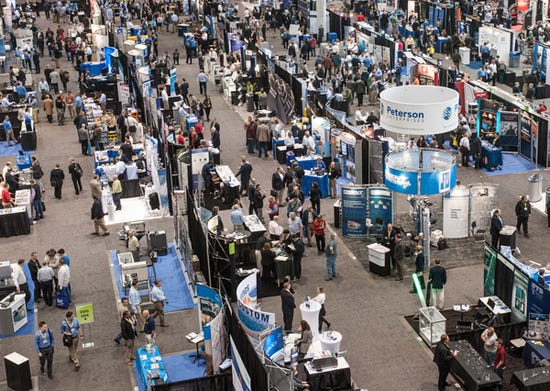February 18, 2015
There will be plenty to discover at New England's greatest medical device manufacturing conference.
Chris Newmarker

This year's edition of BIOMEDevice Boston will feature a conference dedicated to the themes of medical device design and quality concerns, wireless technology, and 3-D printing.
Here are some especially noteworthy highlights:
May 6, 2015
3-D Printed Body Parts: 2:10-2:30 p.m.
Stuart Williams, PhD, director of the Bioficial Organs Program at the University of Louisville, discusses the "realities and myths of buildling 3-D printed body parts." The talk is part of longer session running from 1-2:30 p.m. that explores 3-D printing innovations in medtech.
An internationally recognized biomedical engineering expert, Williams caused a stir last year when he predicted that it could be possible within 10 years to create a fully functional, implantable, 3-D bioprinted human heart, which would provide a potential cure for heart disease. While the goal of 3-D printing organs remains difficult, Williams and his research team have already made progress in using 3-D printing to create living heart components, which were successfully implanted in mice.
Designing a User-Centric Medical Device: 2:45 p.m.-3:15 p.m.
Find out how to crack the design code from Craig Scherer, senior partner and co-founder of Insight Product Development (Chicago), and Sean Corrigan, the company's director of engineering. Subject of discussion include examples of simple but disruptive designs, the impact of device feature set and complexity decisions, and leveraging the user's capabilities and expectations to navigate device design decisions. "It's important to navigate what might seem like conflicting goals, to ensure that whatever is developed will resonate across all stakeholders," Scherer recently told MPMN/Qmed.
May 7, 2015
Wireless Medical Devices: 10 a.m.-4 p.m.
There is a big need for cutting-edge wireless medical devices consumers love. The hard part is making them.
BIOMEDevice Boston has a three-part, daylong session on the subject of medical devices, with experts coming from such medical device heavyweights as Stryker, Siemens Healthcare, Medtronic, and Philips Healthcare. Discussions will include such wide-ranging topics as business paradigms, batteries, regulatory risks, hospital interoperability, cybersecurity, and Big Data.
The Future of Medical Device Battery and Power Systems: 11:15 a.m.-11:45 am
Medtronic had been leading the charge when it comes to creating miniaturized implantable medical devices, such as leadless pacemakers. One of the major design challenges in this area has involved batteries, which must be small yet long-lasting. So it should be interesting to hear a top Medtronic scientist in this field discuss the trends he is seeing for batteries and power systems, in a talk that is part of the day-long wireless medical devices sessions. Prabhakar Tamirisa, PhD, is principal scientist at the Battery Research & Technology Group at the Medtronic Energy and Component Center.
Innovations in 3-D Printing: 10 a.m.-4 p.m.
It might be worth it to check out this additional day-long 3-D printing session that is geared toward all industries.
University of Michigan researchers have already had success 3-D printing polycaprolactone splints to keep open infants' airways. The splints eventually absorb into the body. Printing splints for infants could just be the beginning. "Manufacturers and hospitals could view 3-D printing as a cost-cutting technique that allows them to reduce product inventory costs with more 'just in time' production," ECRI Institute said in a recent report.
One might even envision a factory with hundreds of direct metal laser sintering (DMLS) or EOS machines engaged in various facets of high-volume medical device manufacturing, says Rob Richards, business development manager for Orchid Design (Shelton, CT).
3-D printing has its own three-part, daylong session at BIOMEDevice Boston. Find out the latest 3-D printing trends, and tools enabling 3-D printing in rapid prototyping. Discover Lockheed Martin's view of the factory of the future from Slade Gardner, a Lockheed Martin fellow in advanced manufacturing and materials. Diran Apelian, professor of engineering and director of the Metal Processing Institute at Worcester Polytechnic Institute, will discuss innovative materials and uses of metal in 3-D printing.
Chris Newmarker is senior editor of Qmed and MPMN. Follow him on Twitter at @newmarker.
Like what you're reading? Subscribe to our daily e-newsletter.
About the Author(s)
You May Also Like


